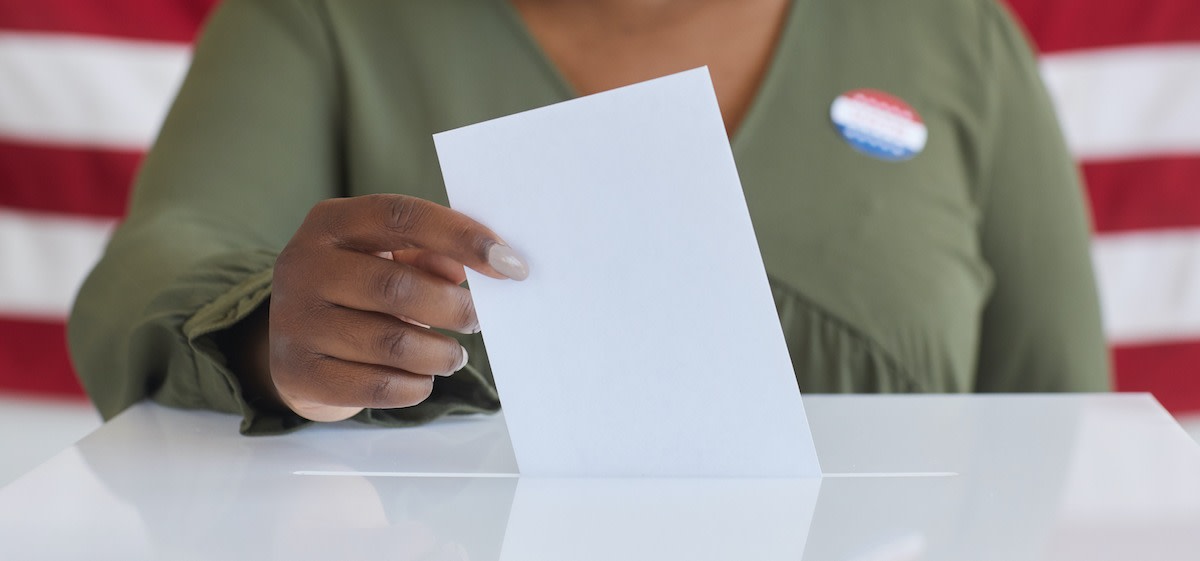Voting Rights Act of 1965: History, Significance, and Changes
Written by MasterClass
Last updated: Sep 6, 2022 • 3 min read
The Voting Rights Act was a crowning achievement of the Civil Rights Movement, making it easier for Black Americans to vote. Learn more about the groundbreaking act.
Learn From the Best
What Is the Voting Rights Act of 1965?
The Voting Rights Act of 1965 (also known as the VRA) is a landmark voting rights bill passed during the Civil Rights Movement. The act banned literacy tests for voters and provided a framework for federal examiners to intervene in jurisdictions where nonwhite voter registration was significantly lower than white voter registration. It also gave the US attorney general and the Department of Justice the right to investigate possible uses of poll taxes.
In the 1970s, Congress expanded the law to provide protections for people belonging to a language minority in the United States. In 1982, Congress further clarified the law, stipulating that the attorney general should evaluate voting practices based on the “totality of the circumstance” to determine if they were discriminatory. Basically, Congress decided that the discriminatory effects of voting laws are more important than the discriminatory intent.
A Brief History of the Voting Rights Act of 1965
The Voting Rights Act was a response to a long history of voting restrictions based on racial discrimination:
- The Fifteenth Amendment: Following the Civil War, the Fifteenth Amendment to the Constitution (1870) gave all men the right to vote regardless of “race, color, or previous condition of servitude” (i.e., enslavement).
- The Jim Crow era: After the subversion of Reconstruction in 1877, states throughout the South enacted laws and implemented policies aimed at discouraging or depressing the Black vote. This voting discrimination took many forms, including literacy tests, poll taxes, and grandfather clauses that severely restricted individual rights on the basis of race.
- The end of federal poll taxes: In 1964, the Supreme Court ruled that poll taxes in federal elections were unconstitutional.
- Selma to Montgomery March: On March 7, 1965, in a major moment of the Civil Rights Movement, activists, including John Lewis, initiated a march from Selma to Montgomery, Alabama, to demand protections for minority voters at the ballot box. Alabama state troopers used excessive force against nonviolent marchers, spotlighting the issue.
- The Voting Rights Act: On July 9, 1965, following a debate on a bill passed by the Senate that previous May, the House of Representatives passed the VRA. On August 6, 1965, just over a year after signing the Civil Rights Act of 1964, President Lyndon B. Johnson signed the VRA into law at a ceremony attended by civil rights leaders, including Martin Luther King, Jr., banning any “qualification or prerequisite to voting … applied by any state or political subdivision … on account of race or color.”
- The end of state poll taxes: In 1966, the Supreme Court ruled that poll taxes on the state level were also unconstitutional.
The Significance of the Voting Rights Act of 1965
The VRA had a significant impact on improving minority groups’ ability to participate in the electoral process, especially Black voters throughout the South. The removal of prohibitions that excluded major parts of the population from the civic process resulted in an immediate increase in the number of Black Americans who were able to vote. It also impacted how many Black Americans were able to acquire seats in legislatures at the local, state, and federal levels.
In the mid-1960s, only about seventy Black people held representative positions in the South; by the turn of the twenty-first century, about 5,000 Black Americans held political office throughout the South.
Have Any Changes Been Made to the Voting Rights Act?
In more recent years, several US Supreme Court decisions have severely curtailed the protections offered by the VRA and made it harder to challenge suspect voting practices. In its 2013 Shelby County v. Holder decision, the court called the formula to identify districts with a history of discrimination outdated. This decision eliminated the preclearance stipulation in the original VRA, by which changes in voting laws in certain suspect districts required approval from the attorney general or the District Court for the District of Columbia.
The Voting Rights Act was further weakened in July 2021, when the court upheld two laws in Arizona in the case of Brnovich v. Democratic National Committee, even though they imposed roadblocks for voters.
The battle over the VRA as a valuable piece of civil rights legislation continues today: The Justice Department filed suit against the state of Georgia in June 2021 to challenge a law that restricts voters’ ability to access ballots easily. They filed a similar lawsuit against Texas in November 2021.
Learn More About Black History
There’s a lot of information that history textbooks don’t cover, including the ways in which systems of inequality continue to impact everyday life. With the MasterClass Annual Membership, get access to exclusive lessons from Angela Davis, Dr. Cornel West, Jelani Cobb, John McWhorter, Kimberlé Crenshaw, Nikole Hannah-Jones, and Sherrilyn Ifill to learn about the forces that have influenced race in the United States.
